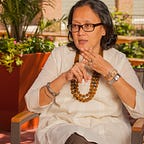Resilience — building positive dialogue with yourself
The word echoes harder with so many life stories impacted with the Covid-19 pandemic. Building some perspectives will help our capacity to change develop an intentional and ongoing effort to carry on. And one way to achieve balance by committing to self-care as a priority is in a resilience model introduced by Annie Hanekom.
Resilience vs Stability
Emotional Quotient or EQ from Daniel Goldman deliberately assigned four legs of a table-self-awareness, social awareness, self-management and relationship management — where it will help regulate us to gain stability. Resilience, on the contrary, tested and proven that we are able to cope with disappointments, failure and pains. A mind set created from reflection that we are adaptable by first taking care of our self. Self-care can be a simple act of helping you not harm yourself. It is time allocated for you.
An example is a 1-minute time out ‘full body scan’ exercise to acknowledge things you need to support yourself
Balance
The self-care discipline will allow fresh air to reinvigorate the set of targets for betterment within constructive steps. First, vision and identity, where a pre-determined identity of you embodies your visionary work. It is what you want to see when you look back at yourself set in certain time-line in the future, by taking advantage with a room of opportunity to create or recreate yourself. Second, decisive action, by enabling yourself for responsible decision even with minimum background information. Third, interpersonal support, the availability of resources to bridge needs of assistance between personal and professional issues whilst at the same time facilitating emotional and tactical.
Finding balance while reworking your self-care requires key actions of integrating and at the same time establishing boundaries between work and life demand, by pushing back and minimizing ‘always on’ status.
Tools
Meditating on tools for resilience by means of allowing positive dialogue with yourself through practicing mindfulness, cultivating compassion and disciplined planning — it is all translated into practical commitment to find balance for your well-being.
Finally, again you still need to carefully assess the new practices suitable for you, what is needed for reworking and decision for action accordingly.
